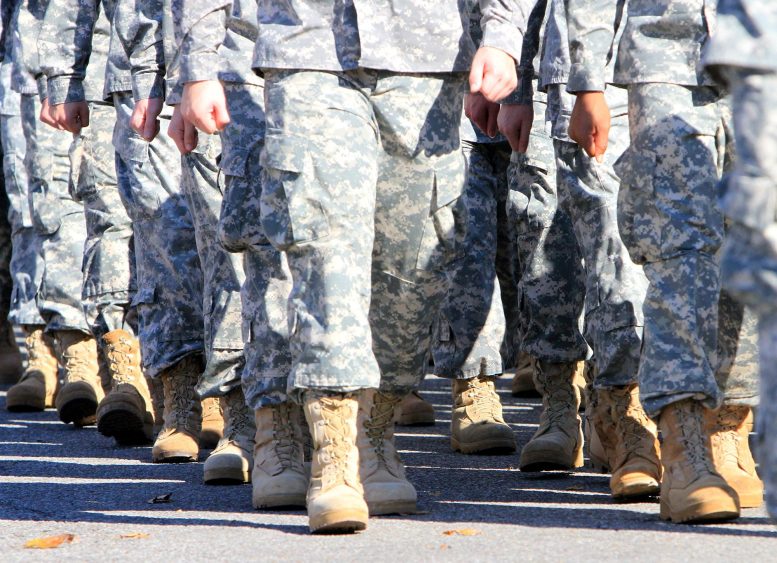
Veterans with protective factors like employment, spiritual faith, stable living conditions, and social support were 92% less likely to report severe violence.
A new study from the University of North Carolina School of Medicine suggests veterans with protective factors in place such as employment, spiritual faith, living stability, and social support were 92 percent less likely to report severe violence than veterans without these factors.
A national survey identifies which U.S. military veterans may be at most risk of aggression after deployment and what strategies could potentially help reduce the likelihood of violence when service members return home.
The study examined protective factors that are important in preventing violence, including employment, meeting basic needs, living stability, social support, spiritual faith, ability to care for oneself, perceived self-determination, and resilience (ability to adapt to stress). Veterans with these factors in place were 92 percent less likely to report severe violence than veterans who did not endorse these factors. The majority of veterans (over three-quarters of those studied) did endorse most of these protective factors and thus posed a low threat of violence.

Eric B. Elbogen, PhD, left, and Sally C. Johnson, MD, right. Credit: UNC Health Care
These findings are reported in an article published June 25, 2012, in the Journal of Clinical Psychiatry of a National Institute of Mental Health-funded study led by Eric B. Elbogen, PhD, Research Director of the Forensic Psychiatry Program in the University of North Carolina School of Medicine and Psychologist in the U.S. Department of Veterans Affairs.
“When you hear about veterans committing acts of violence, many people assume that post-traumatic stress disorder (PTSD) or combat exposure are to blame,” Elbogen said. “But our study shows that is not necessarily true.” The national survey revealed that other factors are just as important to understanding violence in veterans, including alcohol misuse, criminal background, as well as veterans’ living, work, social, and financial circumstances. In fact, the survey found that veterans who didn’t have enough money to cover basic needs were more likely to report aggressive behavior than veterans with PTSD.
“Our study suggests the incidence of violence could be reduced by helping veterans develop and maintain protective factors in their lives back home,” Elbogen said.
The survey was conducted between July 2009 and April 2010. Responses were collected from 1,388 veterans who served in the Iraq and Afghanistan War era and theater after September 11, 2001. The sample included veterans from all branches of the U.S. military and all 50 states.
One-third of survey respondents self-identified committing an act of aggression towards others in the past year, most of which involved relatively minor aggressive behavior. Eleven percent of the sample reported more severe violence. Elbogen noted, “Although the majority of study participants did not report aggression, the potential for violence does remain a significant concern among a subset of returning veterans.”
Dr. Sally Johnson, co-author and Professor in the UNC Forensic Psychiatry Program, points out “Some veterans do not cope well with the loss of the structure, social, and financial support available in the military environment. Attention to helping veterans establish psychosocial stability in the civilian environment can help reduce post-deployment adjustment problems including aggression.”
Reference: “Protective Factors and Risk Modification of Violence in Iraq and Afghanistan War Veterans” by Eric B. Elbogen, PhD; Sally C. Johnson, MD; H. Ryan Wagner, PhD; Virginia M. Newton, PhD; Christine Timko, PhD; Jennifer J. Vasterling, PhD and Jean C. Beckham, PhD, 15 June 2012, Journal of Clinical Psychiatry.
DOI: 10.4088/JCP.11m07593
The other co-authors H. Ryan Wagner, PhD, Virginia M. Newton, PhD Christine Timko, PhD, Jennifer J. Vasterling, PhD, and Jean C. Beckham, PhD are affiliated with the Department of Veterans Affairs.








It surprises me, that you teach and train a person to be violent, and then wonder why he is violent.